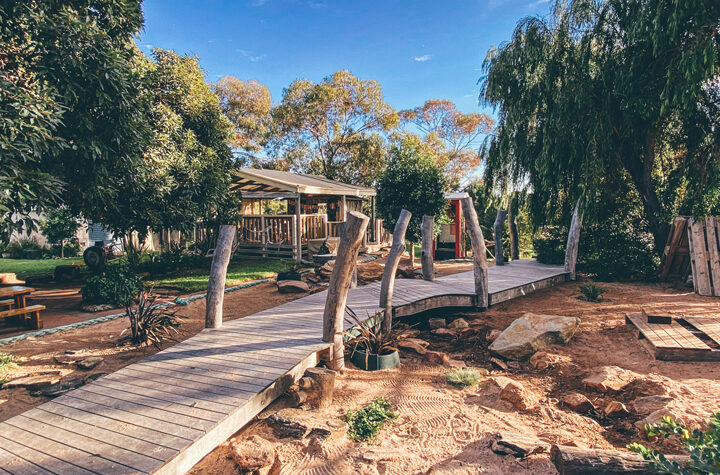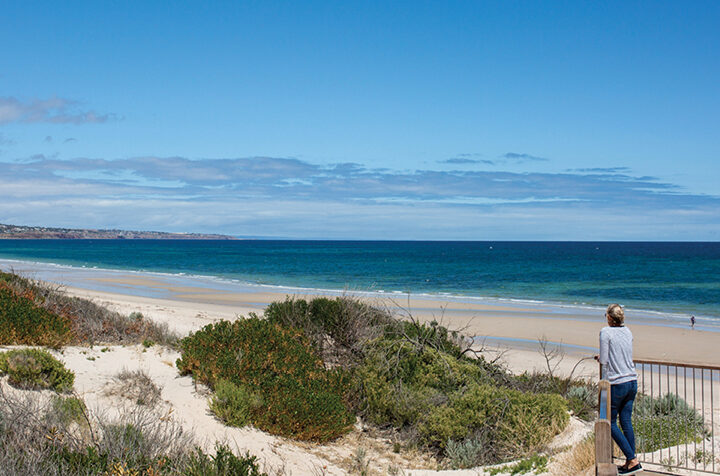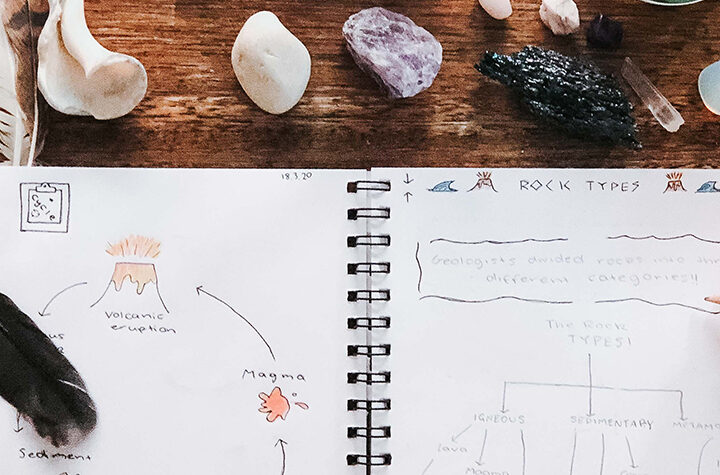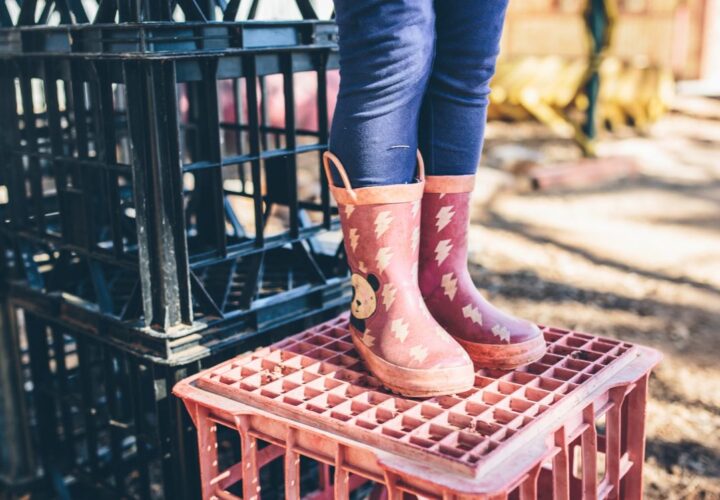Elevating Educator Voices: More Than Just Care
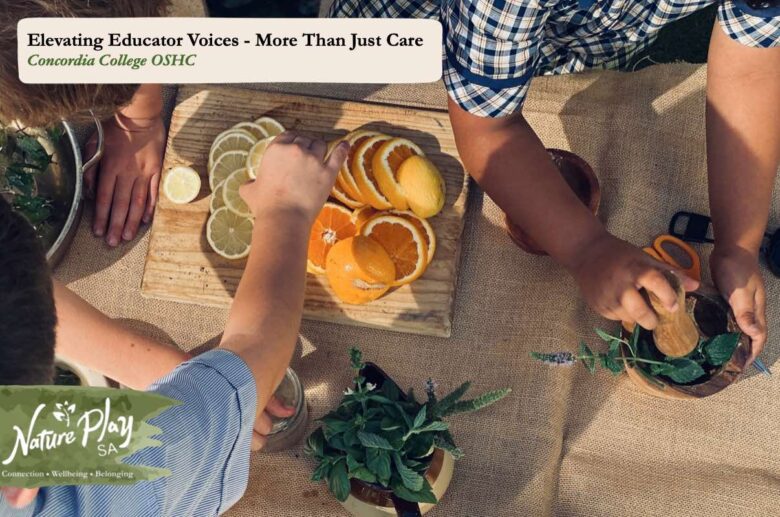
Out of School Hours Care (OSHC) settings are responsible for child-minding. Right? Errr, not exactly. OSHC settings face a raft of unique challenges not seen in other education environments. For example, as alluded to, the educational value of OSHC needs to be more widely understood and acknowledged. It can also be challenging to gain support and funding for programming. And, of course, OSHC settings face the challenge of welcoming and engaging students at difficult times – early in the morning and late in the afternoon.
Jenny Wei, Director at Concordia College’s OSHC explains that transitioning from the classroom to OSHC can be an anxious time for children. But a change in programming has seen increased ease and comfort for the children in her centre.
“Embedding nature play experiences has helped to create a sense of direction and safety”, says Jenny.
“When kids see the provocations placed out before them on arrival, they know they can go ahead and get started.”
And it was a Nature Play SA professional development session (PD) that sparked the shift in programming.
In 2022, Jenny and her education team attended a Nature Play SA workshop that served as a springboard for implementing open-ended nature play within the Concordia College OSHC.
“Attending Nature Play SA’s PD in 2022 gave us many new ideas for nature play that are easily achievable”, says Jenny.
“It allowed us to challenge our thinking around play and how we can think outside the box.
“We have noticed that children who sometimes struggle with change, or find loud, indoor spaces difficult to navigate, have benefited from nature play. The sensory experience of exploring new smells and textures of herbs, grinding down big seeds into powder or mixing big pots of mud and sand has been enjoyable for just about every child that stops by and gets their hands (or even feet) involved.
“Potion-making has been a wonderful sensory experience that is now largely embedded into our OSHC. What started as a few pots and pans from the old sandpit, jugs of water and a few oranges has become a beacon of creativity, resourcefulness and endless opportunities.
“We repurposed one of our craft trollies to house the growing collection of recycled household items, unique op shop finds and creations made by the children.”
As many of us working in education know, nature play is often associated with dirty, messy, muddy fun. And balancing parent expectations about the cleanliness of uniforms can be a barrier to offering nature play in OSHC settings.
Jenny has found that the benefits of nature play activities at OSHC have been clear to most, with families thrilled to be greeted by happy children excited to share what they’ve been up to with their parents. For those who aren’t as keen?
“Incorporating less ‘messy’ activities like nature art, weaving, insect exploration, tent building, and foraging also provides options for children who aren’t fond of getting wet and muddy in their uniforms”, says Jenny.

So, how did Jenny and her staff get started with open-ended nature play programming?
- We started by expanding our collection of resources, which would help us facilitate this type of play with less planning.
- We slowly built a great repertoire of ideas and resources.
- Within our daily routine, we started to utilise our time better, spreading out tasks more effectively to have more staff dedicated to our programming and setting up nature play activities and stations.
The result?
“We have seen a great increase in the engagement of children sustained in the types of play we have incorporated”, says Jenny.
“The children have found the additions to be exciting, engaging and tailored to many of their interests.
“A significant indication of this is the reduced number of children that have asked for technology time in the early afternoon when children are often busy doing something else that has captured their attention.
“We have seen greater opportunities for imaginative play, with many children engaging in fictional stories, role-playing games and more!
“It has been fantastic to see the ideas that have come from something as simple as a few potions. Is it a special medicine for a magic giant? Or perhaps a special superpower tea? The possibilities are endless!”


